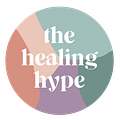The first time I heard that responsibility could be associated with liberation is when I heard Andréa Ranae Johnson say this on the Fierce Authenticity podcast. When I heard that responsibility can be liberatory, I shifted in my seat and squinted my eyes. I was skeptical but intrigued.
How is responsibility liberatory? I was raised to think about responsibilities as another way to feel stuck, to be another cog in the wheel: work, paying rent/mortgage, taking care of elders/kids before caring for yourself, unexpected bills, running errands, saving for retirement, etc. I guess this is what I saw most people do, just grinding through life and wanting freedom FROM responsibility.
Yet lately, when I try to find clarity for myself and for the collective, I find myself asking, “What is my responsibility?” This question makes me feel so free. It is curious. It is empowering. It is clear. It is kind.
Words have so much power, and “responsibility” is one that has been shaped into feeling pinned down.
The Oxford English Dictionary has a few definitions of this word (bold emphasis mine):
Capability of fulfilling an obligation or duty; the quality of being reliable or trustworthy.
The state or fact of being accountable; liability, accountability for something.
The state or fact of being the cause or originator of something; the credit or blame for something.
The state or fact of being in charge of or of having a duty towards a person or thing; obligation. Frequently with for.
This word, responsibility, essentially bundles up the ideas of obligation, duty, trustworthiness, reliability, blame, and accountability - all of which have their own nuances.
I think responsibility is typically used to talk about obligation and duty. And, in a way, I think these can also be looked at in a liberatory way. The main difference I see is that one perspective is transactional and one is reciprocal.
And we cannot forget how systemic injustices and disparities make responsibility look different to all of us. We do not all have the same choices, privileges, bodies, or resources. When the Nap Ministry calls for safety and rest for Black folks, it takes these inequities into account.

Responsibility to use your privilege to dismantle white supremacist systems as a white cishet man looks different if you have a different social location.
Responsibility is autonomy as much as it is interdependent.
When I think about responsibility as freedom, I think about my role in relationships but not in a tit for tat way. I think about it in terms of interdependence and reciprocity. I think about it in terms of caring for others and caring for myself. What is my responsibility to my mind? Body? Soul? And how does that affect the collective?
I’ve thought about this a lot while I’ve been in Disobedience School, especially when I think about controlling others. Just thinking about the ways I tried to change my ex-husband (and change myself for him) makes me cringe.
I remember buying him a GMAT course without his permission because he said he wanted to apply to Business School. He wasn’t doing anything about it, so I took it upon myself to purchase the course for him. I also became his fantasy football team manager so we could feel like a team. One could label this codependence because it was codependence. But when I think about it from a perspective of responsibility, this is how I see it:
It was not my responsibility or my business if he went to business school. While he may have thought going to business school as a benefit to our partnership, it was his decision to make. My purchase without his consent had to do with my desire to control his outcome, but his outcomes are his responsibility. By taking on HIS responsibility, I ignored my own, which resulted in feeling upset at his sour reaction to my purchase.
In order to be compatible with my husband, I needed to adjust myself to what he liked. Ultimately, our compatibility wasn’t natural. One of the things I did was stay up-to-date with his fantasy football team to the point where I became his “manager.” In adjusting to his joy, I was ignoring my joy. Yes, we can always do things for the ones we love, but I was extending myself to the degree where I replaced my joy for his joy. My joy = my responsibility. I don’t remember if he asked me to be his manager or I offered, but, either way, I made that choice. This is not self-blame, I understand the power dynamics in the marriage were toxic. And when power and privilege comes into play, it is even more important to discern how conditioning is influencing what we perceive as our responsibility. When I started prioritizing my own responsibility to my autonomy, my joy, and my well-being, I noticed that our relationship had no flow or compatibility. Eventually, I asked for a separation and divorce, and my divorce was one of the most freeing decisions I made.
When we think about responsibility as self-trust, accountability, respecting others choices, asking for what we need, and clearly communicating how we feel, we can feel that liberation!
I just started listening to How We Show Up by Mia Birdsong, and this quote stuck out:
We have a responsibility to each other to ask for help when we need it. Instead of listening to the fictitious lone wolf in us, we must listen to the wolf in the pack and tap into the impulse that moves us to co-create opportunities for mutuality, opportunities to care for and be there for one another.
I bring this up to show that responsibility is as individual as it is collective. Our responsibility to ourselves, our community, the land, all of it, is reciprocal. My marriage wasn’t a co-creation, it was codependence, it was control, it was forced compatibility. In participating in this relationship, I was blocking myself from community that would benefit from my principles and qualities and vice versa.
Responsibility considered through the lens of reciprocity doesn’t only apply to human relationships.
Lately, I’ve taken to the practice of being more mindful when I brush my teeth. I literally say to myself, “My teeth GIVE me so much. They let me chew. They make it easier to swallow. They give shape to my smile.” So flossing and taking time to brush my teeth doesn’t feel transactional or like a burden because I have a beautiful responsibility to care for them. After all, look how much they give me!
This metaphor can be used in so many contexts. What does the water give us? What do our loved ones give us?
When we ground responsibility in our autonomy and in reciprocity, we start to see things differently.
Mia Birdsong continues:
The way I’ve come to understand it, freedom is both an individual and collective endeavor, a multi-layered process, not a static state of being. Being free is in part achieved through being connected.
I think true liberation means liberation for all. And I think that starts with us individually. When we honor our unique self, the collective benefits. In knowing your responsibility to yourself, you find your people, your environment, and your way of moving in this world.
As Audre Lorde said, “I am not free while any woman is unfree, even when her shackles are very different from my own. And I am not free as long as one person of Color remains chained. Nor is anyone of you.”
There’s often the top-down vs bottom-up argument when it comes to making change. But I’ve always seen it as a sphere - similar to the sun and planets. Thinking linearly gives linear outcomes. There’s no supremacy in spheres, only locations.
What is your responsibility given your location(s)? Your social location? Your physical location? Your digital location? Your relationship location? Your heart and soul’s location?
These are lifelong and ever-evolving questions. There’s no urgency to answer them. But there is a responsibility to answer them :)
How is responsibility liberatory for you? I’d love to know.










Responsibility as Liberation